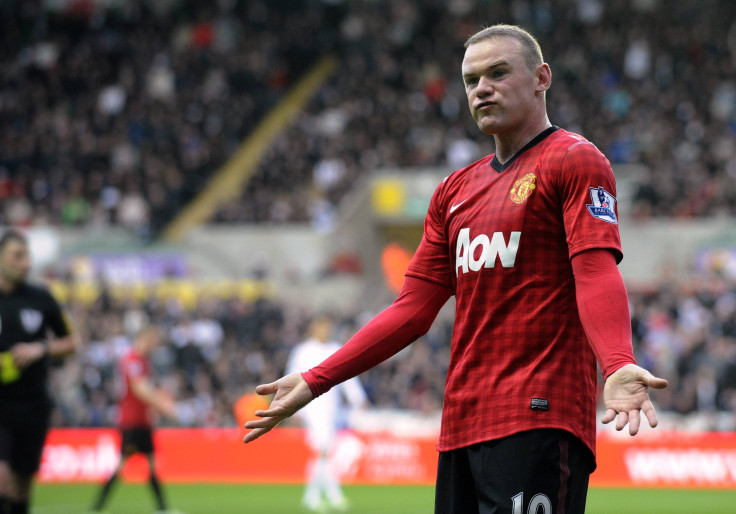Would Wayne Rooney Transfer To Chelsea Come Back To Haunt Manchester United?

The wheels for the most high-profile transfer between Premier League clubs in recent history are firmly in motion with Chelsea confirming that they have made a bid for Manchester United forward Wayne Rooney. The news comes less than 24 hours after it emerged that Rooney had told David Moyes that he was “angry and confused” about the United manager’s recent comments suggesting that the England international was a backup for Robin van Persie. While Chelsea’s initial bid was rejected, it is unlikely to be the end of the story.
Moyes has repeatedly insisted that Rooney is not for sale, but the saga may have now taken an irretrievable turn. If Rooney were to follow up his frustration with an official transfer request then the process would be accelerated even further. The question remains, though, will United sell a player who they rated so highly less than three years ago, that they were willing to offer a contract worth around £250,000 a week to keep him at the club, to one of their rivals for the Premier League title next season? Would they be mad to countenance such an idea?
The truth is that, if it’s decided that the best option is to sell the unsettled 27-year-old, then United may have little option. On a huge contract and coming off the back of a poor season, there is far from a rush of elite clubs across the continent beating a path to Rooney’s door. The player’s high profile may apply to top clubs from a commercial standpoint but he is no longer an individual that can make the likes of Real Madrid, Barcelona and Bayern Munich salivate. Questions have repeatedly been asked about Rooney’s conditioning over the years, an element of a player’s profile that is arguably taken even move seriously on Europe’s mainland than in a country where elements of the beer-and-kebab culture of yesteryear still linger.
It’s hard to digest now, but when Rooney signed for United as an 18-year-old on the back of breaking out on the international stage at Euro 2004, it was he that perhaps appeared a greater prospect than the man just a few months his senior who had arrived at Old Trafford the previous year, Cristiano Ronaldo. In his book of cringe-worthy platitudes, “My Decade in the Premier League,” one of the few interesting discourses comes as Rooney describes Ronaldo’s dedication to the gym in contrast to his own antipathy toward it. The results since are there for all to see.
Rooney is perhaps one of the last players in England to have honed his skills on the streets. It was the signs of that -- the fearless busting toward defenders, the spectacular, instinctive strikes out of nowhere -- that initially so took the eye. Those moments, though, have become increasingly fleeting over the years. It has perhaps partly been coached out of him, maybe down to his willingness to sacrifice himself for the team or his struggles to retain his sharpness throughout a campaign. But by the time of next year’s World Cup, it will have been a decade since Rooney did anything of note at a major international tournament. His lack of conditioning is undoubtedly a part of that.
All that is not to say, though, that Rooney is a player now incapable of performing at a high level. Just two seasons ago he scored 27 goals in 34 Premier League appearances and he undoubtedly remains the best English striker around. If Jose Mourinho were to be able to lure Rooney to Stamford Bridge, it is quite conceivable that he could hit in excess of 20 league goals next season and have many talking of Chelsea scoring a coup over their rivals. Yet, with a bevy of young support attackers like Eden Hazard, Oscar, Andre Schurrle and Victor Moses (not to mention Juan Mata, who Chelsea deny was offered in part-exchange for Rooney), it is difficult to see how Rooney fits either out wide or off a main striker, where he has always looked more influential rather than as a No. 9.
It would also be hard to argue that Rooney’s best playing days lie ahead of him. The former Everton prodigy is not a Ryan Giggs, with the naturally lean body type and a dedication to preserving his fitness. One has to think that for Chelsea to secure Rooney they will have to match his current wages and offer a contract of at least four years. And that could well prove a deal as reckless for Roman Abramovich as the ones that brought Andriy Shevchenko and Fernando Torres to the club when both were not needed and past their best.
© Copyright IBTimes 2025. All rights reserved.





















